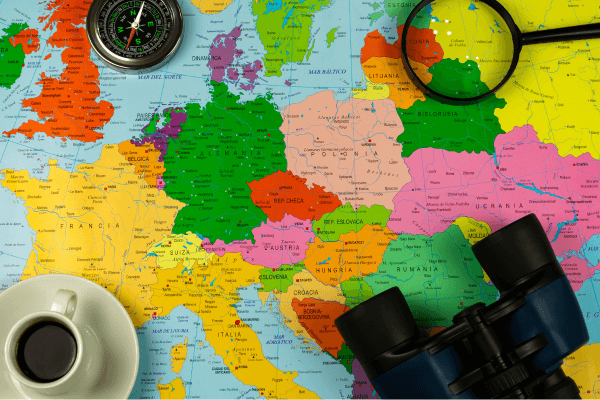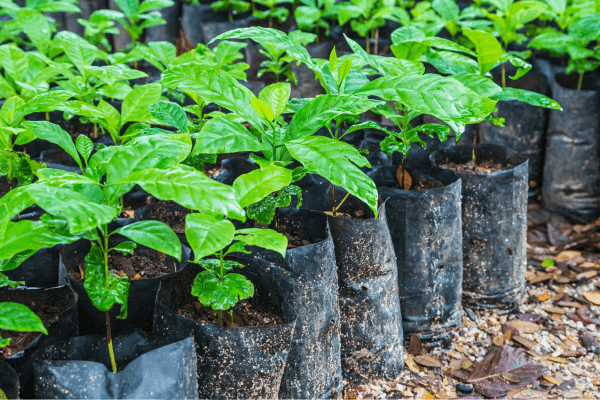Curiosities About Coffee – The Most Consumed Drink
Curiosities About Coffee: appreciated and consumed globally, permeates diverse cultures and landscapes, from busy urban landscapes to peaceful rural areas. Its presence in everyday life transcends its mere status as a drink, embodying a beloved ritual and social connector for countless people around the world.
In this article, we embark on a journey to discover the hidden sides of coffee. Beyond its role as a morning necessity or midday indulgence, coffee encapsulates a fascinating mix of history, science, and cultural significance. From the laborious cultivation of beans to the intricate rituals of brewing, every aspect of coffee cultivation and consumption reveals layers of tradition, innovation, and intrigue.
Join us as we navigate the maze of coffee’s origins, production methods, and consumption patterns. Along the way, we’ll discover surprising statistics, explore its impact on health and well-being, and celebrate the universal allure of this beloved beverage. Prepare to be captivated by the rich tapestry of stories and insights that coffee, the world’s favorite drink, has to offer.
Curiosities About Coffee: From Early Discoveries to Global Commodity
The history of coffee dates back to ancient times, but it was in the 15th century that it began to be restricted around the world. The drink gained popularity in the Middle East and the Arab world, becoming an integral part of culture and social rituals. From there, coffee was launched in Europe and later in the Americas, boosting the growth of its production and consumption.
Today, coffee is one of the most important and widely traded commodities in the world. It is estimated that over 2.25 billion cups of coffee are consumed daily around the world, showing its global reach and influence.
Curiosities About Coffee: Who Produces and Who Consumes Coffee?
Coffee production is dominated by a few countries that have accepted climatic and geographic conditions for cultivation. Brazil is the largest coffee producer in the world, followed by Colombia, Vietnam and Indonesia. These countries play a key role in supplying the global coffee market.
As for consumption, Europe is the leading region, with countries like Germany, France and Italy standing out as major consumers of coffee. However, coffee consumption is increasing worldwide, with significant growth in countries such as the United States, Brazil and Japan.
Curiosities About Coffee: Coffee and its Effects on the Body
In addition to its irresistible taste and aroma, coffee also has some health benefits. Scientific studies prove that moderate coffee consumption is associated with several positive effects on the body.
Coffee is rich in antioxidants, which help fight free radicals and protect cells from damage. Additionally, the caffeine in coffee can improve brain function, increase alertness, and even improve athletic performance.
Other studies suggest that regular coffee consumption may be associated with a lower risk of developing several diseases, including type 2 diabetes, Parkinson’s disease, heart disease and certain cancers.
Curiosities About Coffee: Varieties and Preparation Methods
Coffee offers a variety of options in terms of flavors, aromas and brewing methods. There are two main species of coffee: Arabica and Robusta. Arabica coffee is considered of higher quality, with milder flavors and more complex aromas, while Robusta coffee has a stronger flavor and a higher amount of caffeine.
As for the preparation methods, there are a number of options, from the traditional strained coffee to the modern espresso machine. Each method offers a unique experience and influences the flavors and characteristics of the drink.
Curiosities About Coffee: Social and Economic Impact
Coffee plays a crucial role in the global economy, providing jobs and livelihoods for millions of people around the world. From smallholders and producers to processing plants, transport and trade, coffee accounts for an extensive value chain.
In addition, coffee also has a significant social impact. In many producing countries, coffee cultivation is a vital source of income and livelihood for local communities. Fair trade and sustainability have gained prominence, ensuring that producers are remunerated fairly and that production is carried out in a sustainable and responsible manner.
Curiosities About Coffee : Coffee as Ritual and Culture
In addition to its flavor and stimulating effects, coffee also plays an important role as a ritual and cultural expression in many societies around the world. In many regions, coffee is much more than just a beverage, it is a social experience and a symbol of hospitality.
In Arab culture, for example, coffee is carefully prepared and served in small cups. It is common for guests to be greeted with a cup of coffee as a sign of welcome and respect. Arabic coffee is brewed into a special meal called dallah and served with dates or pastries.
In Brazil, coffee is an integral part of daily routine and social relationships. The famous “cafezinho” is a Brazilian tradition, being served in almost all occasions, from business meetings to informal meetings with friends. Coffee is also deeply rooted in the country’s cultural traditions, like strained coffee, consumed in a relaxed and appreciative way.
In many European countries, coffee is enjoyed in coffee shops and bars, where people gather to enjoy a cup of coffee, read a book or chat with friends. Italian espresso coffee is an example of this tradition, where the act of drinking coffee is almost a ritual, carried out standing at the coffee shop counter.
The Power of Coffee in Productivity and Creativity
Coffee is also known for its stimulating effects on the brain, increasing energy, alertness, and focus and concentration. Many people turn to coffee to help receive their productivity at work or studies.
Scientific studies that caffeine present in coffee can improve cognitive performance, memory and even stimulate creativity. Many writers, artists and creative professionals find coffee a source of inspiration and focus for their creative pursuits.
Coffee and Sustainability
Despite its success and popularity, the coffee industry faces persistent sustainability-related challenges. Coffee production can have a negative impact on the environment, including deforestation, soil degradation and excessive use of water and chemicals.
However, there is growing awareness and efforts to make coffee production more sustainable and responsible. Certification programs, such as organic coffee and fair trade, promote good agricultural practices, fair remuneration for producers and protection of ecosystems.
In addition, many companies and organizations are working to promote regenerative coffee growing, support family farming and invest in reforestation projects to restore areas sustainable for coffee production.
Curiosities About Coffee: Conclusion
Coffee is a truly global beverage, with a significant impact on culture, economy and society around the world. Its popularity and large-scale consumption are accompanied by curiosities and surprising statistics that illustrate its importance and influence.
From its role as a ritual and cultural expression to its ability to stimulate productivity and creativity, coffee plays a multifaceted role in our lives. However, it is important to consider the challenges related to sustainability and support responsible practices in coffee production and consumption.
So, the next time you enjoy a cup of coffee, not only enjoy the taste and the stimulant effects, but also reflect on the fun facts and statistics behind this extraordinary beverage. Celebrate coffee as an integral part of our global culture and as a symbol of connection between people of different backgrounds and traditions.
See More: https://amoartesanato.com/






